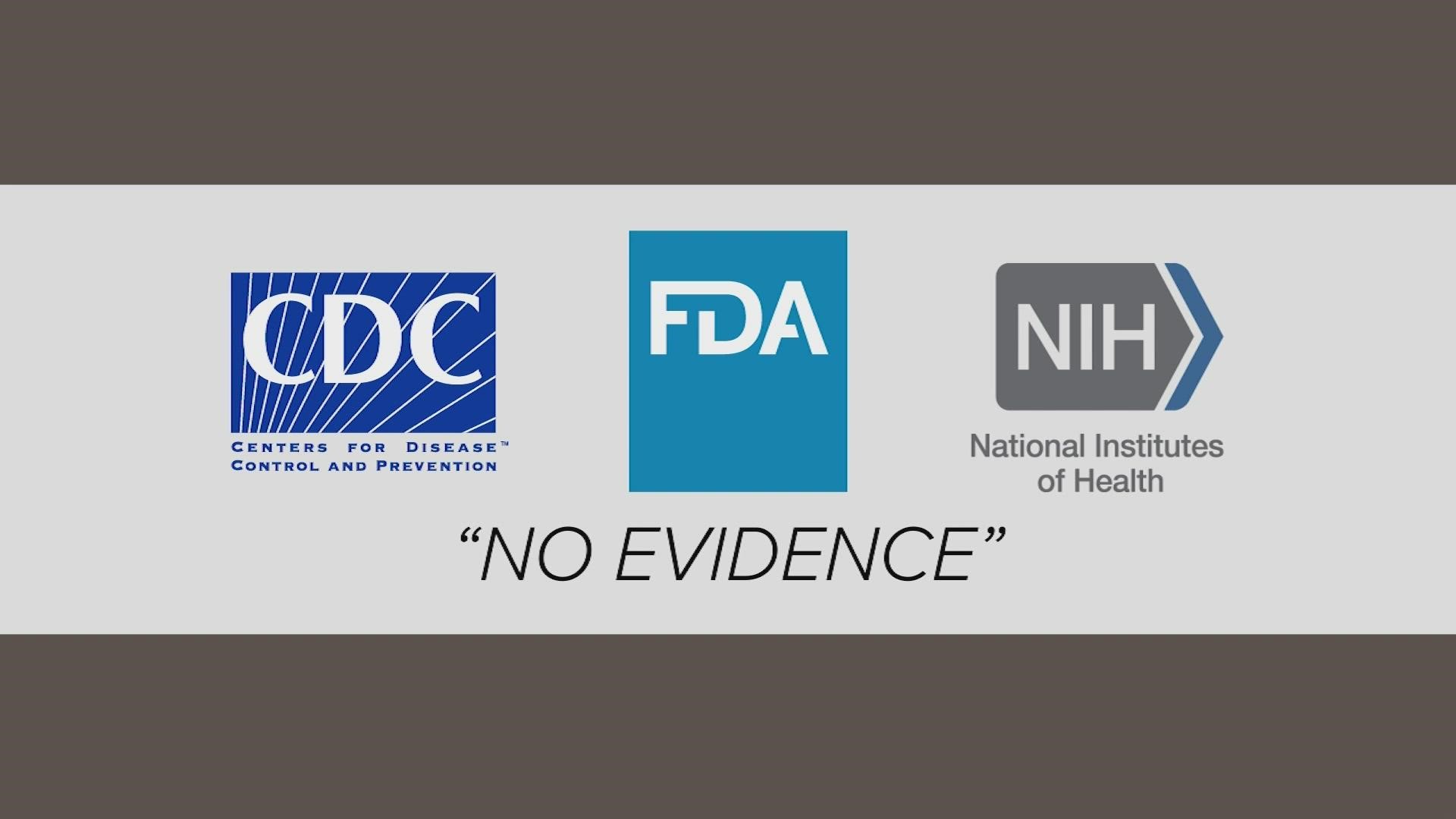The medicine known as ivermectin has become a confusing topic of conversation in connection to the COVID-19 virus.
The North Texas Poison Center recently reported they’ve received 52 poisoning calls for ivermectin this year, compared to six through August of last year. Sixteen of the 52 calls from this year have been in August.
So where did this drug come from and why have people been using it to try and treat COVID-19?
How it was created
In the 1970s, Japanese biochemist Satoshi Ōmura discovered the avermectin family of compounds, which are a series of drugs used to treat parasites and insect pests. Ivermectin is one of these drugs.
Ivermectin has a mixture of carbon, hydrogen and oxygen. It was modified and first introduced as medicine in 1981.
It soon became registered around the world to treat parasitic worms in cattle, sheep, and other animals.
It can be taken as a pill or applied to the skin depending on why it's needed.
From animals to humans
By 1988, ivermectin was approved as a medical treatment in humans.
This "wonder drug," as many called it, was prescribed to treat illnesses, which include head lice, scabies, river blindness (onchocerciasis), strongyloidiasis, trichuriasis, ascariasis, and lymphatic filariasis.
Since its discovery, ivermectin has been used by more than 700 million people in the world specifically to treat river blindness and lymphatic filariasis, according to a National Institutes of Health study.
Connection to COVID-19
A medical study led by Dr. Ahmed Elgazzar in Egypt was published in November 2020. It said that hospitalized patients with COVID-19 who received this antiparasitic drug improved more quickly and had a better chance of staying alive.
It was retracted in July.
Multiple medical agencies - including the Centers for Disease Control (CDC), Food and Drug Administration (FDA) and National Institutes of Health (NIH) - have been unable to find any evidence this drug helps with COVID-19.
The CDC put out a press release in August, making clear that ivermectin is not authorized or approved by the FDA for the prevention or treatment of COVID-19.
Dangers of dosing errors
In that same CDC press release, health experts also warned about the dangers that can come from taking ivermectin incorrectly.
In mid-August this year, U.S. retail pharmacies handed out more than 88,000 prescriptions in one week, according to the CDC.
That is nearly 25 times more than the average before the pandemic.
If someone's dosage of ivermectin is too much or at a level meant for a larger animal, it could have a toxic result.
In some cases, people have ingested ivermectin-containing products purchased without a prescription and intended for animals such as horses, sheep and cattle, the CDC said. This can be highly concentrated and result in overdoses when used by humans.
Animal products may also contain inactive ingredients that have not been evaluated for use in humans, according to the CDC. People who take inappropriately high doses of ivermectin above FDA-recommended dosing may experience toxic effects.

